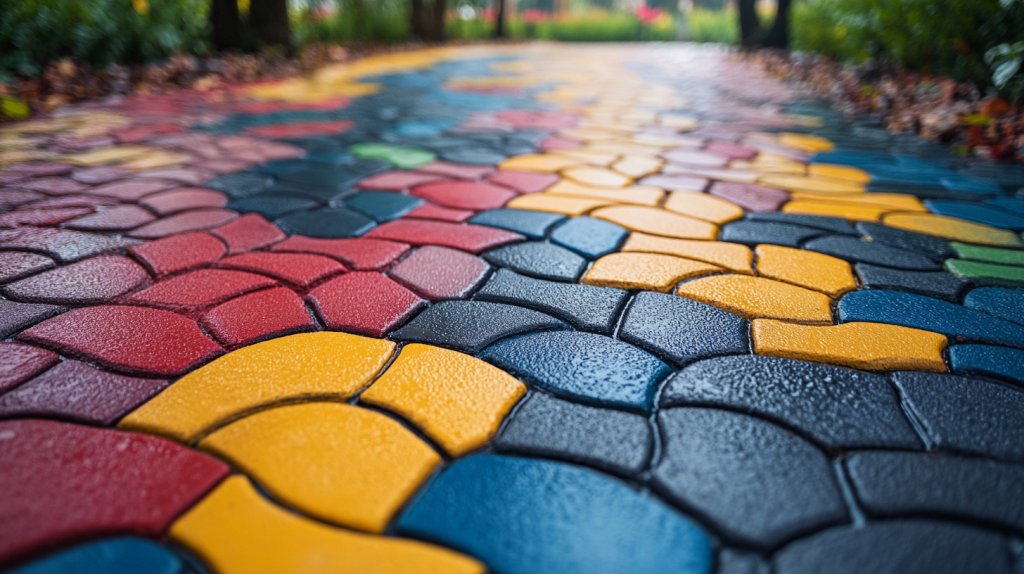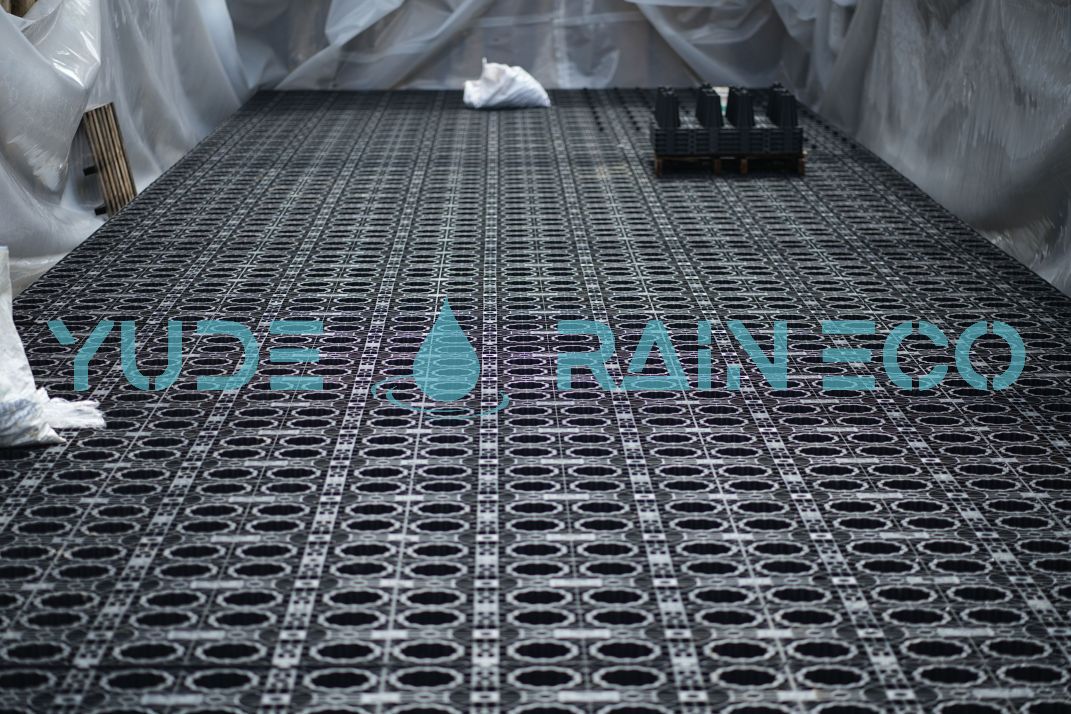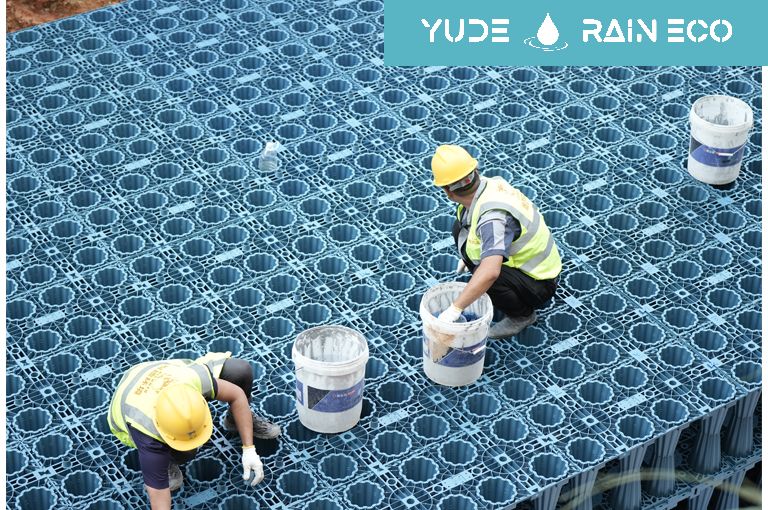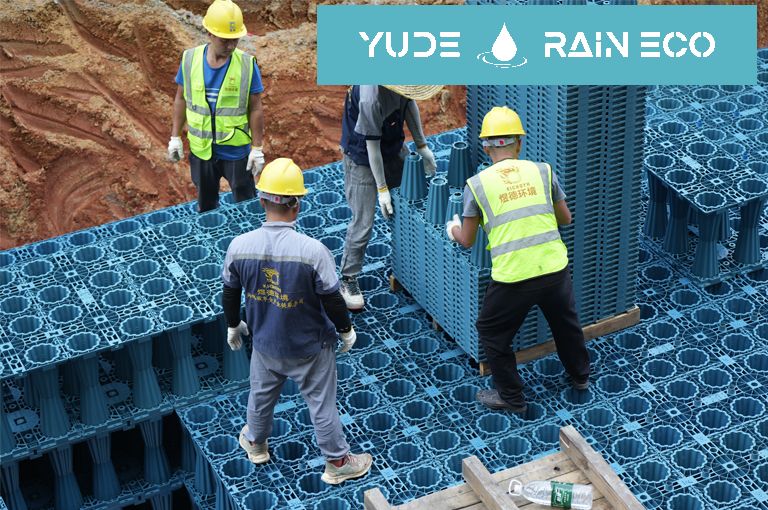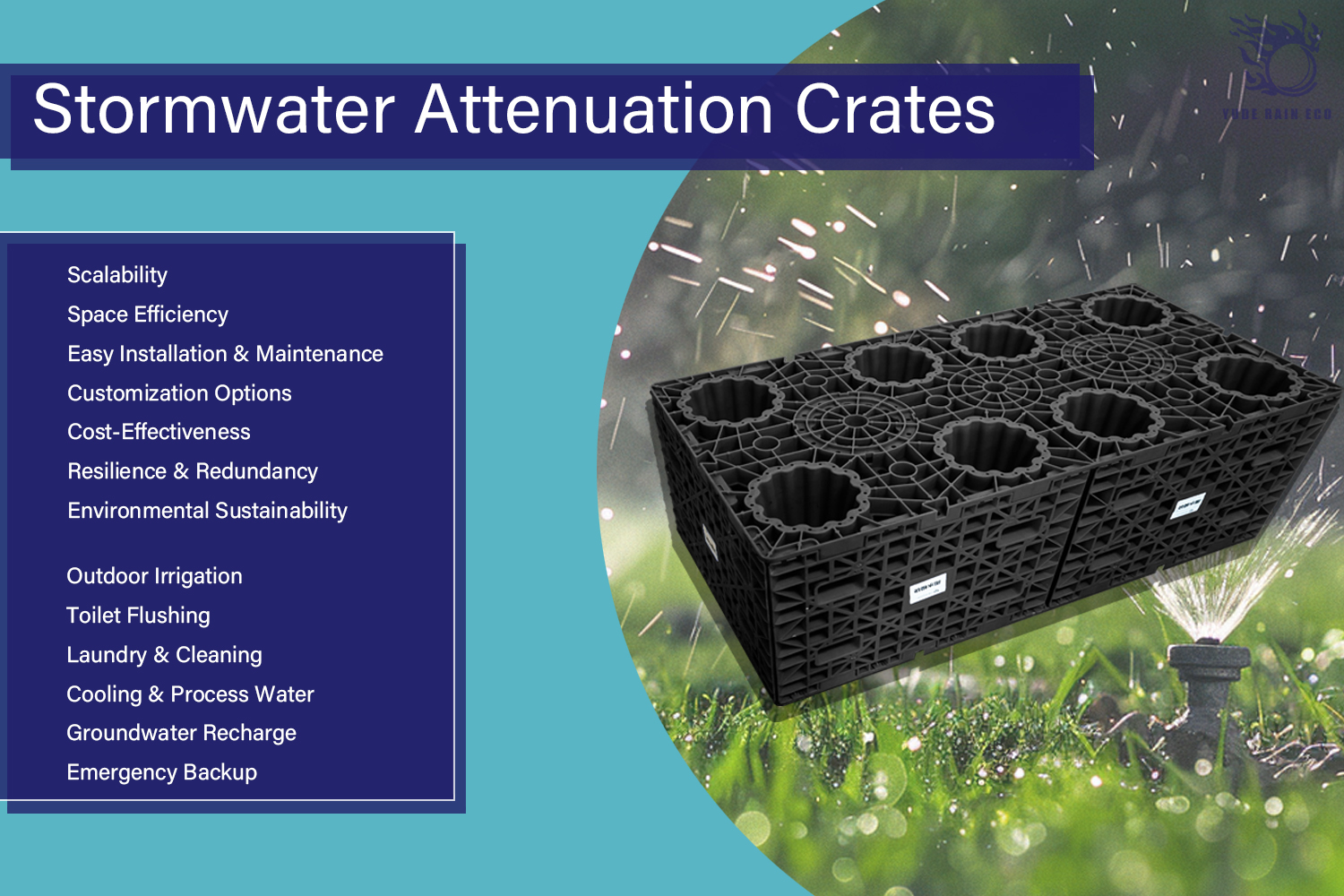The Ultimate Guide to Permeable Concrete Pavers: Sustainable Solutions for Stormwater Management
As urbanization accelerates across the globe, cities are increasingly facing challenges related to water management, flood risks, and environmental sustainability. One of the most innovative and effective solutions to these challenges is the use of Permeable Concrete Pavers. These paving materials not only provide an aesthetically pleasing, durable surface but also offer advanced stormwater management, reduce urban heat islands, and contribute to environmental sustainability. In this guide, we’ll explore the working principle, key benefits, advantages over traditional concrete, installation process, real-life applications, and successful case studies of Permeable Concrete Pavers, all aimed at promoting eco-friendly urban development.
1. What Are Permeable Concrete Pavers?
Permeable Concrete Pavers are interlocking paving stones designed with built-in voids (gaps) that allow water to pass through, be absorbed into the underlying soil, and naturally infiltrate the ground. Unlike traditional concrete, which is impermeable and causes water to runoff, permeable pavers help manage stormwater by allowing rainwater, snowmelt, and other precipitation to filter through the surface and recharge the groundwater. They are typically made from a special blend of concrete designed to be porous and are laid out in such a way that the gaps between pavers allow for water infiltration.
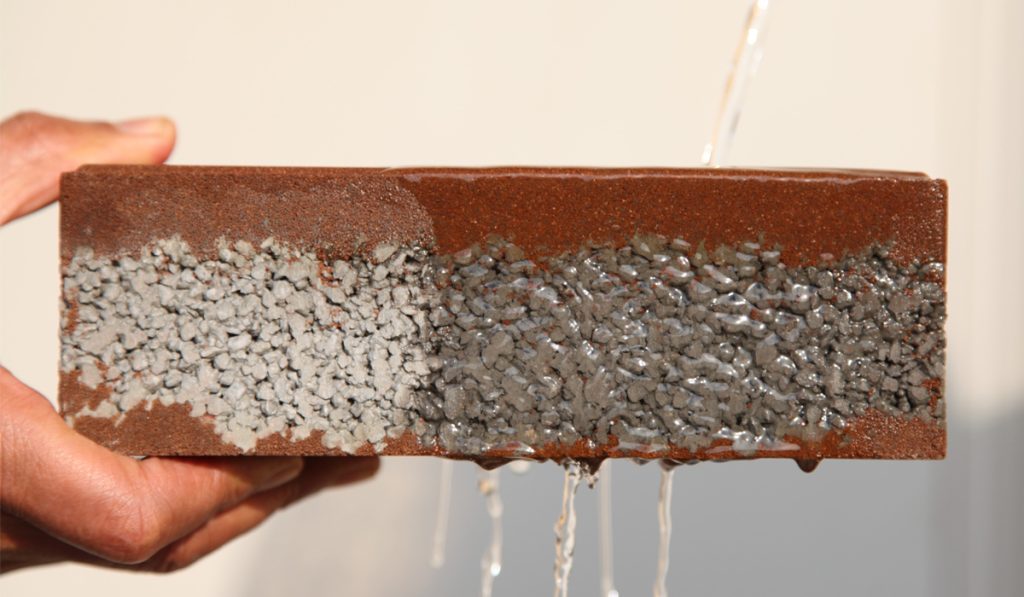
2. The Working Principle of Permeable Concrete Pavers
Permeable Concrete Pavers work through a combination of material design and construction techniques that allow water to infiltrate through the surface. Here’s how it works:
- Porous Concrete Structure: The pavers themselves are made from a special concrete mix that is intentionally porous. This means the concrete contains numerous small voids, which permit rainwater to seep through.
- Interlocking Design: Permeable pavers are designed to interlock, creating gaps between them. These gaps provide channels for rainwater to flow through and into the ground below. The interlocking design also ensures the stability and durability of the paved surface.
- Base Layer for Infiltration: Beneath the pavers, a layer of gravel, crushed stone, or other permeable material is installed. This base layer acts as a storage reservoir for stormwater, where water can either be temporarily stored or allowed to infiltrate into the soil beneath, depending on local conditions.
- Water Filtration: As rainwater seeps through the pavers, it is filtered by the soil and the base material, helping to remove pollutants and debris before the water reaches rivers, lakes, or stormwater systems.
3. Key Benefits of Permeable Concrete Pavers
-
Effective Stormwater Management
- Traditional Concrete: Water runs off impervious surfaces like asphalt and standard concrete, causing flooding and overwhelming drainage systems.
- Permeable Concrete Pavers: These allow water to infiltrate into the ground, reducing runoff by up to 90%. This is especially important in areas where urban flooding is a concern. The pavers help reduce flood risks by storing and filtering rainwater, making them an essential part of sustainable urban planning.
-
Reduction of Urban Heat Island Effect
- Traditional Concrete: Conventional concrete and asphalt absorb and retain heat, increasing temperatures in urban areas, which contributes to the urban heat island effect.
- Permeable Concrete Pavers: By allowing water to pass through, these pavers help cool the surrounding environment through evaporation. This makes urban spaces more comfortable and helps lower the overall temperature, mitigating the urban heat island effect.
-
Improved Water Quality
- Traditional Concrete: Water runoff from traditional pavements often carries pollutants, such as oil, chemicals, and sediment, directly into storm drains and water bodies.
- Permeable Concrete Pavers: The filtration process allows water to pass through the surface, removing contaminants and improving water quality before it enters water systems. This helps reduce pollution levels and protect local ecosystems.
-
Environmental Sustainability
- Traditional Concrete: Concrete production contributes significantly to carbon emissions and environmental degradation.
- Permeable Concrete Pavers: Many permeable pavers are made from recycled materials, contributing to a circular economy and reducing the carbon footprint of construction projects. Their sustainable design promotes groundwater recharge, which is essential for maintaining healthy ecosystems.
-
Cost-Effectiveness in the Long Run
- Traditional Concrete: Traditional pavements often require expensive drainage systems, regular maintenance, and infrastructure upgrades to cope with stormwater runoff.
- Permeable Concrete Pavers: While installation costs may be higher initially, the long-term savings on drainage infrastructure and water management systems can make permeable pavers more cost-effective over time.
4. Advantages Over Traditional Concrete Pavement
Permeable Concrete Pavers offer several advantages compared to traditional, impermeable concrete surfaces:
| Feature | Traditional Concrete | Permeable Concrete Pavers |
|---|---|---|
| Stormwater Management | Water runoff increases flooding risks | Water infiltrates, reducing runoff and flood risk |
| Urban Heat Island Effect | Increases heat absorption, raising urban temperatures | Helps cool surroundings through water evaporation |
| Water Quality | Pollutants are carried into stormwater systems | Water is filtered naturally before reaching storm drains |
| Durability | Prone to cracking and wear over time | Highly durable, resistant to cracking |
| Cost of Infrastructure | Requires expensive drainage systems | Reduces the need for additional drainage infrastructure |
| Maintenance | Requires constant repairs and upkeep | Low maintenance, occasional cleaning needed |
5. Reliable Data and Research on Permeable Concrete Pavers
Numerous studies and research highlight the effectiveness of Permeable Concrete Pavers in stormwater management and sustainability:
- Reduction in Stormwater Runoff:
- According to the Environmental Protection Agency (EPA), permeable pavements can reduce runoff by 90% compared to traditional impervious surfaces, making them a crucial solution for urban flood management.
- Water Quality Improvement:
- A study published in the Journal of Environmental Quality found that permeable pavers can reduce pollutants in stormwater by up to 50%, improving water quality before it reaches natural water bodies.
- Long-Term Durability:
- Research by the National Asphalt Pavement Association found that permeable pavers can last for more than 30 years with proper maintenance, offering long-term value and resilience.
- Economic Impact:
- A cost-benefit analysis from the University of Michigan demonstrated that, although permeable pavers have a higher initial cost, the long-term savings on drainage infrastructure and water management systems can result in up to 40% savings for municipalities.
6. Real-Life Case Studies of Permeable Concrete Pavers
Several cities and projects have successfully implemented Permeable Concrete Pavers to manage stormwater and improve environmental quality:
- Chicago, Illinois – Millennium Park Millennium Park in Chicago uses permeable pavers to manage stormwater runoff while enhancing the aesthetics of the park. The permeable pavement allows rainwater to seep into the ground, reducing the risk of flooding and promoting environmental sustainability.
- Portland, Oregon – Green Streets Program Portland’s Green Streets Program integrates permeable concrete pavers into residential streets, parking lots, and sidewalks. The city uses these pavers to capture rainwater and reduce the strain on its stormwater system, making the program a model for urban sustainability.
- Seattle, Washington – Ballard Commons Park Seattle’s Ballard Commons Park uses permeable paving to manage stormwater and improve water quality in the surrounding area. The park serves as an example of how permeable surfaces can transform urban spaces while contributing to effective water management.
- New York City – Green Infrastructure Demonstration Sites In New York, permeable concrete pavers have been integrated into various demonstration sites, including schoolyards and community centers. These sites showcase how permeable pavements help reduce runoff, improve water quality, and create more sustainable urban environments.
- Tokyo, Japan – Shinjuku Gyoen National Garden Tokyo’s Shinjuku Gyoen National Garden uses permeable pavers to manage stormwater. The permeable surfaces ensure that excess water does not overwhelm the city’s drainage system, while also enhancing the park’s visual appeal.
7. Customizable Sizes and Colors for Permeable Concrete Pavers
One of the key benefits of Permeable Concrete Pavers is their versatility. These pavers can be customized in both size and color to meet the specific needs of any project, offering both functional and aesthetic advantages. Customization ensures that permeable pavers can be seamlessly integrated into various urban designs while maintaining their core functionality in stormwater management.
8. Customizable Sizes: Tailored to Your Needs
Permeable Concrete Pavers come in a variety of shapes and sizes, and they can be custom-manufactured to suit the specific dimensions required for any project. Whether you’re working on a small residential driveway, a commercial parking lot, or a large public space, customizable sizes help ensure a perfect fit and optimal performance.
- Shape and Dimension Flexibility: Pavers can be manufactured in different shapes, including square, rectangular, or custom geometric designs. This allows for easy integration into different spaces and layouts. The dimensions of the pavers can be adjusted to meet site-specific needs, ensuring a smoother installation process and better coverage.
- Custom Sizes for Unique Applications: Some projects may require oversized or irregularly shaped pavers. Custom sizing ensures that permeable pavers can be adapted to any design plan without compromising the functional integrity of the surface. Whether for wide pathways, large driveways, or intricate designs, customized sizes offer endless possibilities.
- Enhanced Drainage Efficiency: By adjusting the size of the pavers and the spacing between them, the drainage efficiency can be optimized. For example, larger pavers with wider gaps may be preferred in areas that experience heavy rainfall or need to manage large volumes of water. The ability to customize ensures that the pavers deliver the highest performance in terms of water infiltration and runoff reduction.
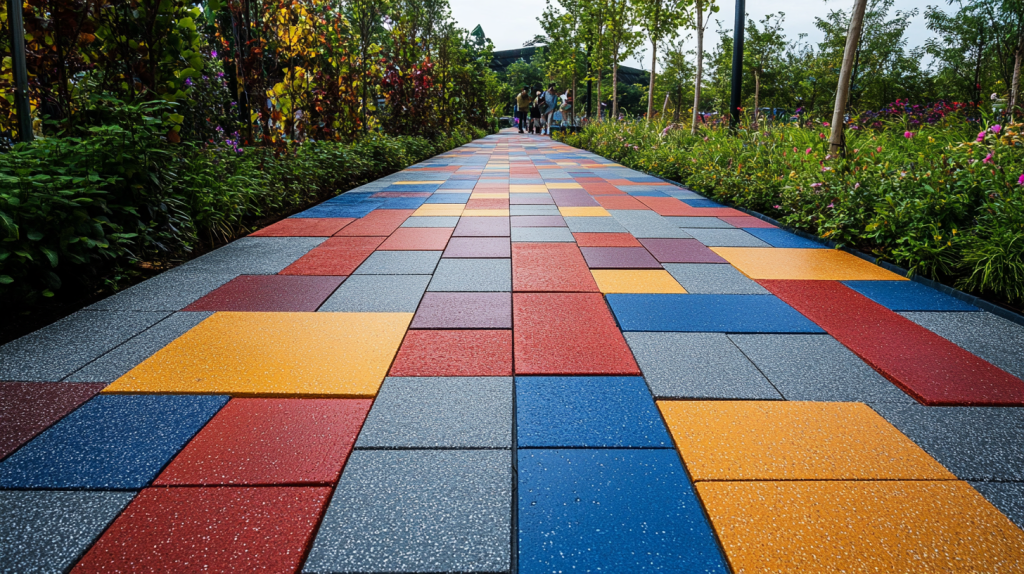
9. Customizable Colors: Enhancing Aesthetic Appeal
In addition to functional customization, Permeable Concrete Pavers can be made in a range of colors to match the aesthetic requirements of a given space. This is particularly useful in urban planning, where visual appeal and design cohesion are essential.
- Color Options for Design Flexibility: Custom colors can be created by adding pigments or dyes to the concrete mix. These colors can range from natural stone-like tones such as grays, browns, and tans, to more vibrant hues like red, blue, or green. This enables designers to match the pavers with the surrounding environment or create distinctive features, such as decorative walkways or parking areas.
- Blended Colors for Natural Look: For a more natural or rustic appearance, pavers can be blended with aggregates, such as crushed stone or gravel, to create unique textures and colors. This helps the pavers blend seamlessly into landscaping features, parks, and gardens, ensuring a harmonious visual integration with the environment.
- UV-Resistant Pigments: For outdoor applications, such as driveways, parking lots, or pedestrian pathways, UV-resistant pigments are often used to ensure that the colors retain their vibrancy and don’t fade over time due to sun exposure. This makes the customized pavers an excellent choice for long-term durability and aesthetic appeal.
- Branding and Unique Designs: Custom colors also allow businesses, municipalities, and developers to create branded spaces. For example, parking lots, plazas, or streets can feature a company logo, city colors, or themed designs, adding a personal or professional touch to public and private spaces. Custom colored pavers can also be used to create traffic flow patterns, walkways, or decorative features in public spaces.
10. Why Choose Customizable Permeable Concrete Pavers?
- Seamless Integration: The ability to customize the size and color of permeable pavers makes them easier to integrate into a variety of settings, from residential landscapes to large urban development projects. You can ensure that the pavers meet both functional and aesthetic needs without compromise.
- Enhanced Design Flexibility: Customizable sizes and colors allow for creative and innovative designs. Whether you’re looking for a specific pattern, a color scheme that matches your surroundings, or a design that blends with the natural environment, customizable pavers offer unparalleled flexibility for designers and architects.
- Perfect for Any Project: From residential driveways to large commercial developments, customizable Permeable Concrete Pavers offer the perfect solution for projects of any scale. Whether your focus is on water management, sustainability, or aesthetic appeal, these pavers can be tailored to meet your specific requirements.
- Sustainability with Style: By combining the environmental benefits of permeable paving with custom design options, you can create sustainable, visually striking spaces that improve water management and enhance the urban landscape.
11. Conclusion
Permeable Concrete Pavers represent a crucial innovation in the pursuit of sustainable urban development. These pavers offer numerous benefits over traditional concrete, including superior stormwater management, reduced urban heat islands, improved water quality, and long-term cost savings. By utilizing permeable concrete pavers, cities and developers can create more sustainable, resilient, and aesthetically pleasing urban environments. Whether for residential driveways, commercial parking lots, or public parks, permeable pavers provide a robust solution to some of the most pressing environmental challenges of our time.
As more cities adopt sustainable infrastructure practices, the demand for permeable concrete pavers will continue to rise, offering a path toward greener, more water-efficient cities. Yude Rain Eco committed to providing high-quality permeable paving solutions to meet the needs of modern urban development.
By offering tailored sizes, you can optimize drainage and infiltration rates to match the specific requirements of your site. And with a range of color options, you can ensure that the pavers complement the surrounding environment or fit your brand’s visual identity. The ability to customize these paving materials means that they not only offer the environmental benefits of stormwater management but also elevate the design of any urban or residential space.
Yude Rain Eco offer a variety of customizable permeable concrete pavers to suit your project’s needs. If you’re interested in implementing permeable concrete pavers in your next project, contact us today to learn more about how we can help you implement eco-friendly, durable, and aesthetically pleasing paving solutions for your next project.

